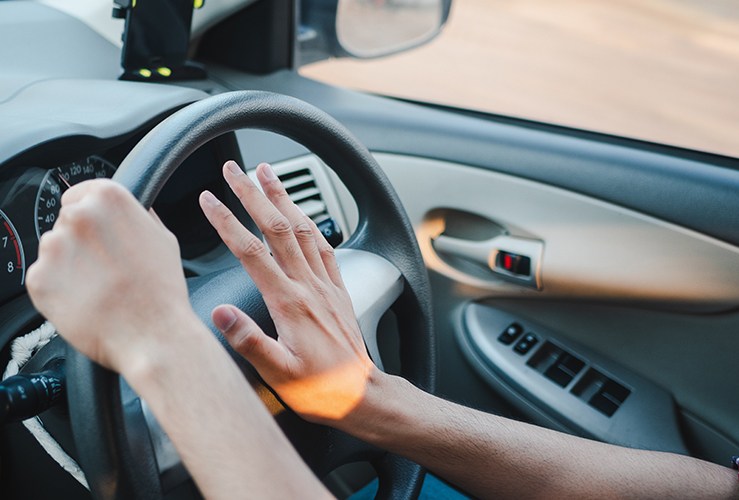The British are well known for their politeness, their dislike of confrontation, and their willingness to turn the other cheek.
However, this doesn't seem to apply when we get into or onto any sort of vehicle!
According to a survey on road range by CompareTheMarket, 62% of UK drivers experience road rage, with 30% saying they had experienced a face-to-face confrontation with another motorist.
The report revealed the top four causes of road rage in the UK:
- Tailgating (35%)
- Slow driving (29%)
- Drivers talking on phone (29%)
- Not using indicators (29%)
The survey suggested that drivers in certain areas were more likely to be triggered by certain behaviours. For example, Belfast, Brighton, Bristol, and Cardiff were most angered by slow drivers.
Leeds drivers were angered by a lack of indicators.
Confrontation on our roads
The internet is awash with clips of road rage incidents, from cars who refuse to reverse in order to let a motorbike pass, to buses knocking over cyclists.
Things tend to escalate when a driver gets out of their vehicle. Verbal assaults can be exchanged. Swearing, shouting and even spitting can follow. And sometimes things can get violent.
Many cyclists and motorcyclists wear cameras on their helmets - chiefly because they can record any incidents and potentially use the footage in court as evidence.
Motorists, too, are increasingly installing dash cams - primarily so they have footage to back up any insurance claims they might need to make.
In what scenarios do road rage take place most?
According to the CompareTheMarket report, most road rage takes place in town centres (21%), followed by city traffic (18%), motorways (15%), roundabouts (15%) and finally residential roads (14%).
In terms of locations, Belfast drivers were most likely to experience road rage, at 71%. This is followed by Sheffield (68%), Birmingham and Nottingham (both 66%).
The lowest levels of road rage were in Newcastle and Edinburgh - although this was still around the 50% mark.
How to deal with road rage?
When someone makes you angry, it's extremely difficult not to react in some way. If you do need to react, then doing so verbally to yourself in your car's cabin is preferable to communicating your anger outside the vehicle - such as by honking your horn or making a rude hand gesture.
Tips for de-escalating your road rage:
Keep your concentration
Once you've been triggered, other things inside your car can make things worse: blaring music, noisy passengers. Try to make things as quiet and calm as possible inside your cabin - and your brain may be more inclined to relax and let the road rage go.
Don't drive tired
Tiredness can make people irritable in all sorts of situations. But becoming irritable while driving can be a recipe for road rage - increasing the chance of a confrontation on the road. make sure you take regular breaks on long distance trips.
Count to ten
This classic school-yard advice still holds true as an adult. give yourself time to reflect on whether or not a particular course of action is going to be useful in the long run: Will making a rude hand gesture escalate a situation? Is brake checking the car behind actually a good idea?
Let it go
It's not easy for the ego to let things go - being 'right' is a powerful idea to most of us. But in the interests of peace and safety, the adult thing to do is forgive the driver who has wronged you - and let it go. After all, you cannot judge someone based on a brief interaction - if you'd met in another situation you might even be friends!
More road rage quick tips:
- Don't drive while upset about something else. Wait until intense emotions have died down before you get behind the wheel.
- Give yourself extra time to reach your destination (rushing will increase tension and the chances of making a driving error).
- Only use the horn if necessary.
- Be willing to apologise if you did make a mistake - this can quickly de-escalate a situation, since the other party has nothing to fight against.
Road rage and psychology
- Neuro-linguistic expert Rebecca Lockwood discussed road rage as part of the CompareTheMarket survey. She suggested that emotions may be heightened behind the wheel for the following reasons:
- Our parents may have exhibited anger while driving - and we might have picked up this habit.
- If we've been experiencing conflict or issues in other aspects of our lives, this may spill over into our driving. For example, if we perceive ourselves to have been weak in a situation at work, we may seek to redress this by not backing down when we come into conflict on the road.
- The simple fact we - and other drivers - are cocooned in our vehicles means we may become dissociated from the fact we are dealing with real people.





